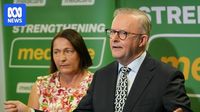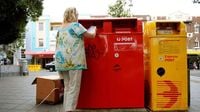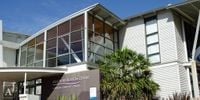As the countdown to the 2025 Australian Federal Election intensifies, early voting kicks off today, April 22, 2025, with pre-poll locations open across the Northern Beaches. This election, scheduled for Saturday, May 3, marks a significant moment for Australian politics, with the Australian Electoral Commission (AEC) preparing for a surge in voter participation, especially from those unable to attend polling places on the big day.
The AEC has announced that early voting centers will operate from April 22 until May 2, with specific hours for each day. Voters can cast their ballots Monday through Friday from 8:30 AM to 5:30 PM, and on Saturday, April 26, from 9:00 AM to 4:00 PM. However, all centers will be closed on Anzac Day, April 25, 2025, a public holiday observed to honor Australia’s veterans.
In a move to streamline the voting process, the AEC conducted ballot draws on April 11 to determine the order of candidates on the election papers. For the electorates of Mackellar and Warringah, the draws revealed a diverse range of candidates, including independents, members of the Liberal Party, and representatives from minor parties such as Pauline Hanson’s One Nation and the Greens.
In Mackellar, the ballot order features Lisa Cotton (Independent), Brad Hayman (Pauline Hanson’s One Nation), and Ethan Hrnjak (The Greens NSW), among others. Similarly, Warringah’s ballot includes prominent figures like Zali Steggall (Independent) and Celine Varghese-Fell (Australian Labor Party).
Voters unable to attend polling places on election day have until April 30, 2025, to apply for postal voting, with the AEC encouraging prompt applications. The deadline for postal vote applications is set for 6:00 PM local time on that date. The AEC has noted a significant demand for postal votes in past elections, estimating between 2 and 2.5 million applications in recent federal elections.
Electoral Commissioner Jeff Pope emphasized the urgency of applying for postal votes, stating, "If you need a postal vote, there’s no time to waste. The best time to apply was yesterday. The second-best time to apply is right now." Postal voting is particularly popular among Australians living in remote areas or overseas who may find it challenging to vote in person.
As the election approaches, the political landscape remains dynamic. Recent Newspoll results indicate that support for Labor has risen to 34 percent, maintaining a two-party preferred lead of 52-48 over the Coalition. This trend is seen as a potential improvement over Labor’s performance in the 2022 elections, but Prime Minister Anthony Albanese cautioned against complacency, asserting, "This election is certainly up for grabs."
Albanese’s comments came after a weekend spent at Sydney’s Royal Easter Show, where he was reminded of the importance of staying focused. Referring to the 2019 election, he remarked, "I remind colleagues that in 2019, the bookies paid out, and that win didn’t occur." His acknowledgment of the unpredictable nature of elections underscores the heightened stakes as voters prepare to make their choices.
In a notable development, the Coalition, led by Opposition Leader Peter Dutton, is expected to announce a significant increase in defense spending this week, aiming for 2.5 percent of GDP in the coming decade. This announcement is strategically timed to coincide with Anzac Day, a period that traditionally emphasizes national security and remembrance. Currently, Australia is budgeted to spend approximately $60 billion on defense next financial year, representing just over 2 percent of GDP.
Dutton has positioned the Coalition as the party focused on law and order, pledging a $750 million crackdown on crime that includes increased resources for police and a national sex offender register. However, Albanese has challenged this narrative, highlighting the government’s existing investments in crime prevention and denouncing the Coalition’s attempts to portray themselves as the sole defenders of public safety.
In addition to defense spending, the political atmosphere is charged with controversy, as the AEC investigates 47,000 unauthorized pamphlets opposing Teal candidate Allegra Spender circulating in her Sydney electorate. Spender has condemned the pamphlets as a smear campaign, while her Liberal opponent has denied any involvement in the distribution.
As early voting begins, both major parties are bracing for a competitive election cycle, particularly in western Sydney seats like Blaxland and Watson, where incumbents face strong challenges from independent candidates. The rise of teal independents has reshaped traditional voting patterns, making preferences a critical factor in this election. In fact, fewer than 10 percent of seats were determined by first preferences in recent years, highlighting the evolving electoral dynamics.
With the election just weeks away, the AEC anticipates that half of all voters may opt for early ballots, reflecting a growing trend towards convenience in the voting process. By offering multiple options, including postal voting and early polling, the AEC aims to ensure that all Australians have the opportunity to participate in the democratic process.
As the political landscape continues to shift, voters are encouraged to stay informed about the candidates and their policies. The 2025 Australian Federal Election promises to be a pivotal moment for the nation, with significant implications for the future direction of the country.
In this charged environment, voters are reminded of the importance of making their voices heard, whether through early voting, postal ballots, or at the polls on May 3. With the stakes higher than ever, the coming days will be crucial in shaping the outcome of this election.








